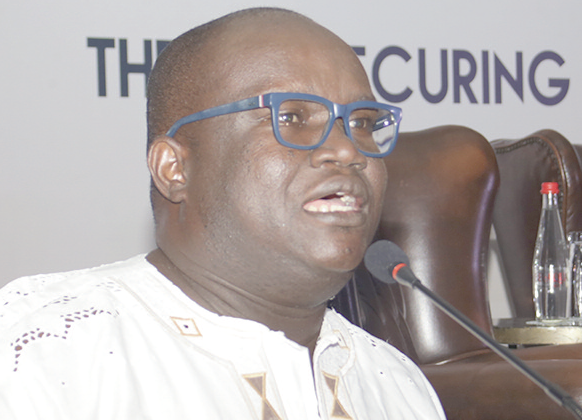Dr. Ken Ashigbey, a prominent voice in the fight against illegal mining in Ghana, has sharply criticized President John Mahama’s approach to the issue, particularly concerning the controversial Legislative Instrument (LI) 2462. This regulation, intended to govern mining activities within forest reserves, has become a point of contention between the government and environmental advocates. Dr. Ashigbey argues that the LI, rather than protecting Ghana’s forests, actually facilitates their exploitation and undermines the government’s stated commitment to environmental preservation. He has publicly given President Mahama a failing grade on his handling of the illegal mining crisis, specifically citing the decision to amend rather than repeal LI 2462, a move he views as a betrayal of a previous promise. Dr. Ashigbey’s core argument revolves around the inherent contradiction between allowing mining within protected forest reserves and the fundamental principles of environmental protection.
The crux of the disagreement lies in the interpretation and implementation of LI 2462. While the regulation ostensibly includes provisions for environmental safeguards and conditions for mining operations within forest reserves, critics like Dr. Ashigbey argue that these provisions are inadequate and easily circumvented. They contend that the very existence of the LI legitimizes mining within these sensitive ecosystems, thereby opening the door to widespread environmental damage and exacerbating the already rampant problem of illegal mining, commonly known as “galamsey.” This practice often involves unregulated and destructive methods that devastate forests, pollute water sources, and threaten local communities. Dr. Ashigbey and other advocates maintain that the only viable solution is a complete repeal of the LI, thereby reinforcing the inviolability of forest reserves and sending a clear message that mining within these areas will not be tolerated.
In response to the mounting criticism, the government, through its spokesperson Felix Kwakye Ofosu, has attempted to clarify its position and reassure stakeholders. While acknowledging the concerns regarding LI 2462, Mr. Ofosu emphasizes the need for a cautious and considered approach to its repeal. He argues that simply discarding the regulation without a comprehensive alternative framework could lead to further complications, particularly concerning existing mining leases granted under previous administrations. He stresses that some of these leases are held by reputable entities and that abrupt revocation could expose the government to legal challenges and financial liabilities.
The government’s proposed interim solution involves amending the LI to remove the President’s authority to grant new mining leases within forest reserves. This measure, according to Mr. Ofosu, would effectively halt further expansion of mining operations in these protected areas while the government develops a more comprehensive and long-term strategy. He points to the Minister for Environment’s presentation of the amended regulation to Parliament as evidence of the government’s commitment to addressing the issue. This amendment, once ratified, would serve as a temporary safeguard against further encroachment into forest reserves.
However, this interim approach fails to satisfy critics like Dr. Ashigbey, who view it as a delaying tactic and a continuation of the same flawed policy. The core of their argument remains unchanged: allowing any form of mining within forest reserves, regardless of existing leases or regulatory frameworks, is fundamentally incompatible with environmental protection. They argue that the government’s focus should be on enforcing existing laws against illegal mining and strengthening protections for forest reserves, rather than attempting to regulate a practice that should be prohibited outright. The ongoing debate highlights the complex interplay between economic interests, environmental concerns, and political considerations in addressing the challenge of illegal mining in Ghana.
The fundamental disagreement revolves around the very premise of mining within forest reserves. While the government argues for a nuanced approach that balances economic development with environmental protection, critics contend that such a balance is impossible to achieve in practice. They believe that the inherent risks associated with mining, even under regulated conditions, are too great to justify the potential damage to these fragile ecosystems. Furthermore, they argue that the existing regulatory framework is inadequate to prevent illegal activities and that the presence of legal mining operations often serves as a cover for illicit activities. This creates a complex and challenging situation where economic interests, represented by mining companies and the government’s desire for revenue generation, clash with the imperative to protect Ghana’s natural heritage. The ongoing debate underscores the urgent need for a comprehensive and transparent national dialogue on the future of mining in Ghana, one that prioritizes environmental sustainability and the well-being of communities affected by this controversial industry.














